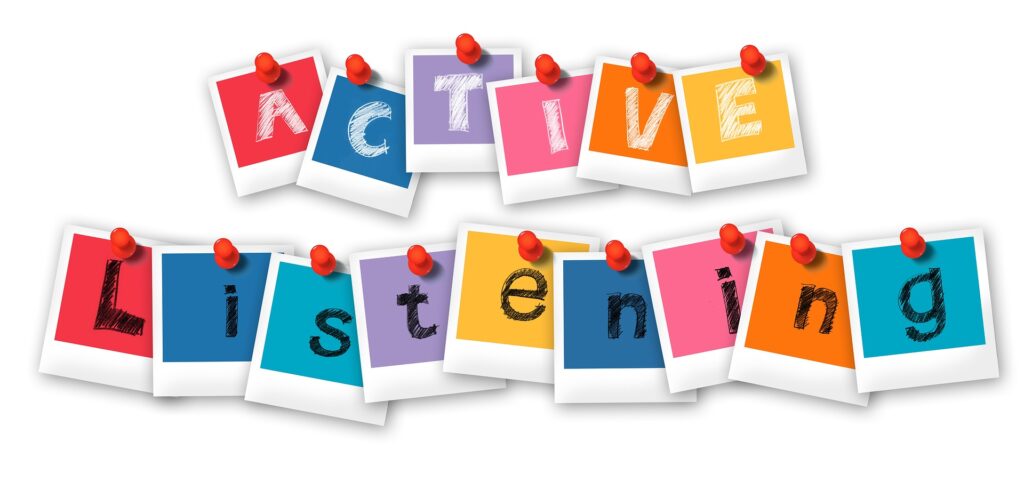Summary
this blog is about how the life skill of listening is important in communication and everyday life and reentry into society after incarceration
We spend 70% of our day communicating in one way or another. Reading, writing, talking, or listening. 45% of that time is used for listening. So having effective listening skills is important.

Life skills are necessary for full and successful participation in everyday life. So what are “Life Skills”?
Life Skills are all the things that enable us to interact socially with other people in our community. They are also the skills we use to maintain a roof over our head, a job, and food on our table. Being able to pay bills, get to work on time, listen to other people, and resolving conflicts are a few examples. In this blog series we are going to discuss some “critical social life skills”. Negotiation, Conflict Resolution, Empathy, Listening, and Ability to Explain. Today’s blog is about Listening.
Listening is more than just being quiet while someone else is talking. It also means to actively think and focus on what someone is saying. As the old saying goes, “nobody ever learned anything by talking”. But asking questions is also part of listening. If you need more information to understand something or desire more detail, then asking questions are key to being able to better understand what is being said. Asking questions once in a while also shows that you are listening.
Patience is one key to being a good listener. If you are impatient then it makes it really hard to focus on what someone is saying. Practice resisting urge to hurry in traffic, count to ten every time you have urge to check phone, be playful and act like a kid sometimes (yes, this helps us be more patient), “choose slow” – slowing down has a value all its own where you will become more calm and more aware of what is happening around you. One way to practice patience for listening is listening while someone reads a book or news article to you. Sorry, but tv and video are not very good for this. You can also go to church and listen to the sermon. Church is also a great place to build listening skills by interacting with other people in a setting that is free from pressure and deadlines.
Other keys to showing you are listening are making eye contact, nodding or saying uhuh once in a while when you agree with something, facial expressions, and not looking around the room. While smiles and nods tell the person you are listening small movements of body or hands can be subtle way of communicating you have something to say, but too much and you look nervous. It is helpful to do pretty much anything that shows you are interested, paying attention, not distracted, and understand what is being said. You might be listening well but if you look like a zombie people will assume you didn’t listen or care at all. Fidgeting or something like biting nails also sends message you are not paying attention. Like it or not, that is just the way our society works. So listening is actually also communicating. We communicate that we are actively listening.

Don’t overdo it and try too hard especially in job interviews. Fake listening is easily spotted and makes the interviewer uncomfortable. Nobody likes being around someone who makes them uncomfortable let alone hire them. Don’t lean in towards person more than an inch. Eye contact is good, but make sure to blink and don’t stare. As mentioned before, ask a question once in a while. It also helps to repeat what was said to you. If the interviewer is telling you all about the different types of wires the company makes, then you might reply at some point “oh, so you also make the wire that is used for phone lines, I did not know that”. You can practice this with a friend and you will be surprised how fast you can improve listening and job interviewing skills.
Taking notes can be a part of listening but you do not want to be writing everything down. You need to make eye contact more than writing notes. Otherwise you will appear to not be connected with the person speaking and what they are saying. You will miss out on the other parts of listening which include seeing the body language and facial expressions.
But listening is not just a skill for job interviews or at work. It is very important in relationships, day to day life, and even emergencies. The number one thing is to WANT to be a better listener and then TRY.
Look for our other blogs in this Life Skills series.”Negotiation”, “Conflict Resolution”, “Empathy”, “Listening”, & “Ability To Explain”.

